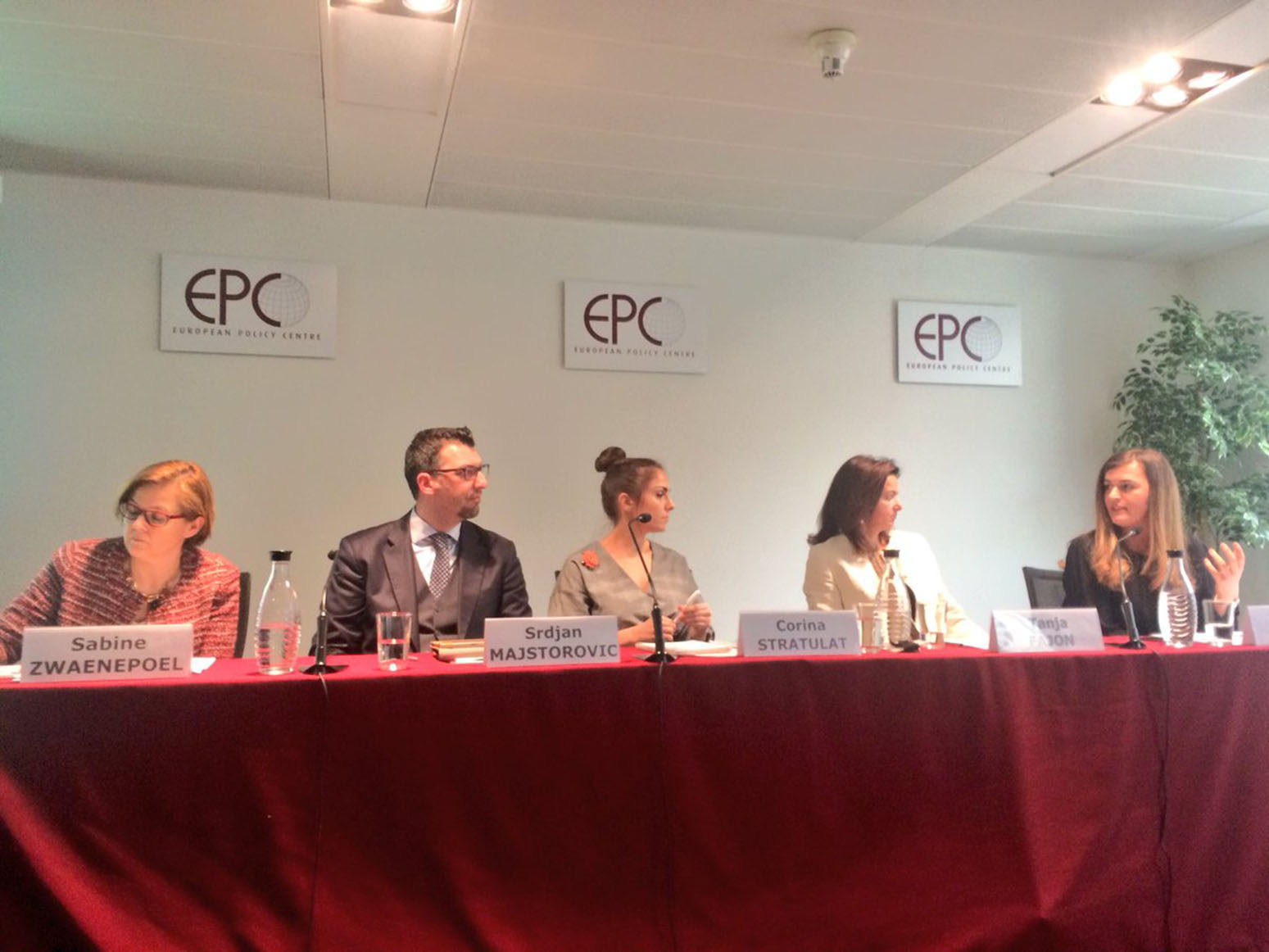On March 21, Think for Europe Network (TEN), in close cooperation with the European Policy Centre (EPC), hosted a Roundtable Discussion on the topic: “Marking the Benchmarks: Promoting and Enforcing Rule of Law in the Western Balkans”, held in Brussels. Since its 2011 enlargement strategy, the European Commission has adopted a more rigorous approach to democratic conditionality, building mostly on lessons learned from its eastward expansion. The EU’s increased focus on ‘good governance’ criteria (such as the rule of law, independent judiciary, media freedom and efficient public administration) was formally reflected for the first time in the negotiation frameworks for Montenegro and Serbia, which require that Chapter 23 (on the Judiciary and Fundamental Rights) and Chapter 24 (on Justice, Freedom and Security) are opened in the early stages of the talks and closed only at the very end of the process, and that overall progress is conditioned by progress in these fields. Moreover, the heavy weight of rule of law issues can now also be felt in the pre-accession phases. But despite the EU’s firm insistence on democratic reforms, all of the applicants in the region, including the front-running countries, have been backsliding.
By assessing the effectiveness of the benchmarking mechanism on Chapters 23 and 24, the BENCHER project seeks to explain the mixed results in the EU’s attempts to induce compliance, exploring whether the Union is more successful in some sub-policy areas than in others, and why. Ms. Rexha from GLPS, on behalf of TEN Network, presented the results of the BENCHER regional project on the effectiveness of the EU conditionality in inducing EU-rule of law related reforms in the Western Balkans.
Overall, the expert panel discussed how is the EU helping candidates to achieve progress on rule of law reforms? To what extent are the current benchmarks appropriate? What more can be done to improve the track record of democratic conditionality in practice throughout the Balkans, so that results match up to the rhetoric? This event addressed these and other questions, drawing on the results of the BENCHER regional comparative study under the TEN umbrella.
Panelists:
Ms. Tanja Fajon – Member of the European Parliament;
Ms. Sabine Zwaenepoel – Senior Expert, Team Leader of Centre of Thematic Expertise, DG NEAR, European Commission;
Ms. Albana Rexha – Senior Research Fellow, Group for Legal and Political Studies;
Mr. Srdjan Majstorović – President of the Governing Board, European Policy Centre – CEP Belgrade;
Ms. Corina Stratulat – Senior Policy Analyst, European Policy Centre.
Venue: European Policy Centre (EPC) Premises, Brussels, Belgium.
Share article
Latest Publications
April 24, 2024
Policy Analysis
Tracking Kosovo's Commitment: Monitoring Adherence to the Venice Commission Rule of Law Checklist in ...
April 8, 2024
Policy Analysis
Reflecting on the Third Year of Kurti II: Setbacks and Achievements in Rule of Law, Public Administr ...
March 22, 2024
Policy Analysis
Lost, “in the Twilight Zone” Rebutting the Court’s Blunder
Related Espresso Insights
March 4, 2024
Espresso.Insights
Passport Hangover: What’s next after Spain’s Kosovo breakthrough?

January 16, 2023
Espresso.Insights
Recognized but not supported: Hungary's stance on Kosovo's EU bid





